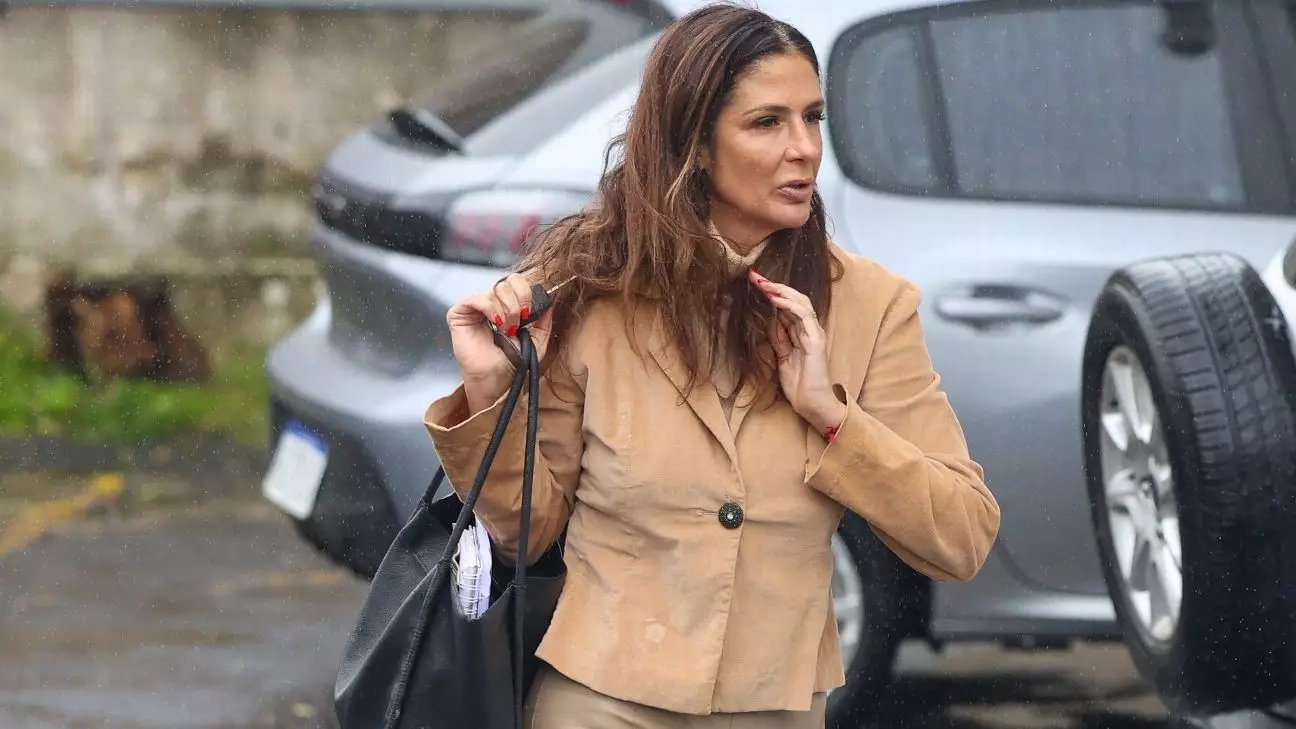The recent verdict from an Argentine court declaring a mistrial in the case surrounding the death of soccer icon Diego Maradona marks another convoluted chapter in a storyline replete with public passion and profound emotions. The court’s decision to initiate a new trial, following the resignation of Judge Julieta Makintach, reveals the intricate interplay of law, media, and public sentiment that has ensnared this high-profile case for months. Accusations of negligence against seven health professionals have elicited fierce public debate, encapsulating not only the grief of a nation mourning a sports legend but also the complexities of accountability in cases involving celebrity status.
Judge Makintach’s involvement in a documentary titled “Divine Justice,” which purportedly documents the aftermath of Maradona’s death and the ongoing trial, raises salient questions about the ethical boundaries of judicial conduct. By stepping down due to perceived conflicts of interest, she inadvertently spotlighted the myriad pressures that surround judicial figures in cases ballooning in social relevance. Criticism from prosecutors regarding her role in allowing the documentary’s filming has undeniably shifted the focus from the accused doctors to the courtroom’s procedural integrity itself.
Public Sentiment and Personal Grief
Maradona’s death on November 25, 2020, sent shockwaves through Argentina and the global soccer community. At just 60 years old, he passed away due to cardiac arrest while recovering from a brain surgery, following a long history of health struggles exacerbated by his tumultuous lifestyle. The trial that began on March 11, 2023, intended to examine whether the medical team failed their star patient during a critical recovery period. The emotional weight of loss is palpable, as evidenced by the tearful reaction of Maradona’s ex-partner, Veronica Ojeda, who expressed sorrow that five years of advocacy might be in vain due to the mistrial ruling.
The intense media spotlight, combined with widespread public interest, transforms every moment in the courtroom into a spectacle. Statements outside the courthouse and interviews with family members evoke feelings of collective mourning intertwined with anger at perceived injustices. This tumultuous emotional landscape reveals the complexities of justice that are layered upon personal bereavement, raising pertinent questions regarding the nature of accountability when it comes to revered figures like Maradona.
The Defendants’ Perspective
The health professionals implicated in this tumultuous trial, including Leopoldo Luque, Maradona’s primary physician, and his psychological and nursing teams, have vehemently denied any wrongdoing. They have suggested that Maradona was a challenging patient, resisting treatment even during his health crisis. This narrative emphasizes the difficulties inherent in medical practice, particularly when dealing with high-profile individuals who grapple with fame and personal demons.
Defense attorney Miguel Angel Pierri’s remarks paint a picture of frustration as he argued that the courtroom chaos has turned into a “great embarrassment.” Here lies a critical aspect of the case—the dichotomy between public grief for Maradona and the clinical realities faced by the medical professionals involved. The rhetoric surrounding accountability must be nuanced to consider various factors that impact medical care, especially when applied to someone with the weight of Maradona’s legacy.
The Broader Implications of the Mistrial
The order to restart the entire trial process opens a plethora of uncertainties. Not only does it undermine the original timeline—initially projected to conclude by July—but it also raises questions about how justice is served in high-stakes cases involving nationally cherished figures. As legal proceedings are set to be drawn out once again, the need for an impartial judicial process cannot be emphasized enough. The involvement of new judges, determined by lottery outcomes in a higher court, introduces yet another layer of unpredictability to an already complex situation.
Ultimately, this mistrial serves as a microcosm of the broader dialogue regarding accountability, celebrity culture, and the intersection of law and morality. Maradona’s legacy continues to loom large in Argentine culture, where he is venerated not only for his astounding skill on the soccer field but also for the complexities of his life. As society grapples with the implications of this trial, it becomes abundantly clear that the outcomes of such high-profile legal matters ripple through the hearts and minds of a nation, transcending mere courtroom proceedings.

